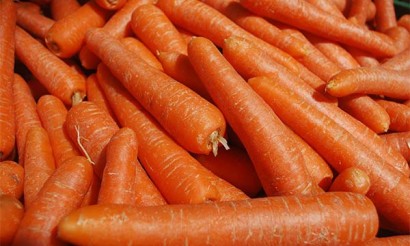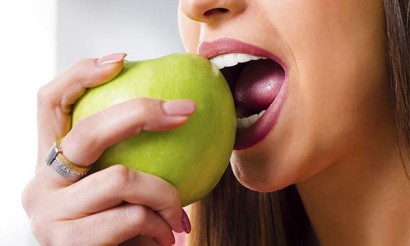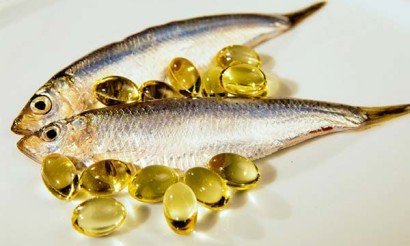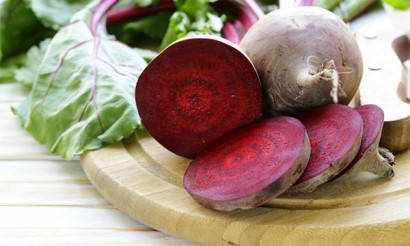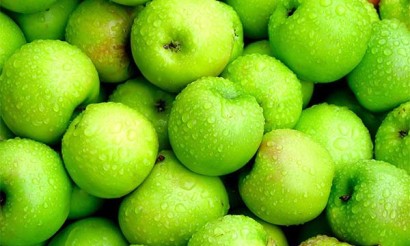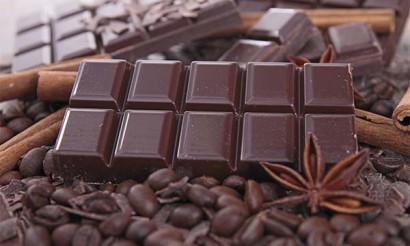Pistachios during pregnancy: benefits and harms
In the list of recommended products during pregnancy pistachios are on one of the first places. This type of nuts has a unique composition and amazing taste, and therefore enjoys great popularity among fans of light snacks. But with the onset of pregnancy for every expectant mother the rules of life are completely changed, and most of all the diet is subjected to changes. Doctors require eliminating the most beloved and tasty foods from the diet, and instead eat foods rich in vitamins and minerals.
- Is it possible to eat pistachios during pregnancy
- 1st trimester
- 2nd trimester
- 3rd trimester
- How to eat pistachios correctly
- How much can we eat per day?
- Can I Eat Pistachios at Night and on an empty stomach?
- Health benefits of pistachios during pregnancy
- Which Pistachios are Healthier
- Raw
- Fried
- Salted
- Health benefits of pistachio oil
- Could pistachios harm an expectant mother?
- How to choose the right nuts
Of course, doctors do not accidentally recommend pregnant women to revise the daily menu: after all, what a woman's plate should provide the fetus with everything necessary for its development. Therefore, the choice of food basket of expectant mothers are such strict requirements. In such situations, the question always arises about pistachios - can they be left on the menu or abandoned for a while?
Indeed, pistachios are very useful for the body of the expectant mother and the developing fetus, but their use during pregnancy has its own nuances. We will tell you how and in what quantity to eat pistachios, why this nutty treat is useful and why it can harm pregnant women.
Can I eat pistachios during pregnancy?
Expectant mothers often discuss their concerns on thematic forums on the Internet. In most cases, the question of nutrition becomes a major problem, especially in the early stages. Change something in life is always very difficult, especially - to refuse a familiar diet.
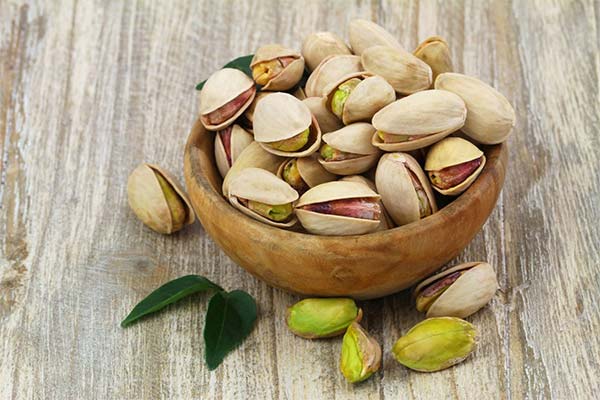
Pistachios are a pleasant and healthy product. Small nuts even in small amounts give the feeling of fullness. Therefore, the pregnancy is not a reason to refuse such a valuable product like pistachios. After all, it is not a disease, but a normal physiological condition for any woman of childbearing age. The bottom line is that while you are carrying your baby, the norms for eating pistachios change slightly. You just need to remember the new rules.
In the 1st trimester.
Many women admit that with the onset of pregnancy the first gastronomic deviation is a craving for nuts. The reason for the increased desire to enjoy the taste of pistachio nuts is the fact that right after conception the female body begins to work in intensive regime, and for this purpose it needs resources. The small kernels of the evergreen shrub of the Sumach family, widespread mostly in the tropics, contain a range of vitamins, minerals and other components. In other words, one little nut is a miniature pantry.
Pistachios are especially valuable to expectant mothers because they contain a high content of vitamin B6 (pyridoxine), which takes part in the synthesis of serotonin, the hormone of happiness. This component is also responsible for the production of adrenaline, which has analgesic properties. Thus, the use of pistachios in the first three months of pregnancy will have a favorable effect on the work of all systems of the female body, as well as raise the mood.
Want to pay more attention to such an important organic compound, like folic acid or vitamin B9. Lack of this component in the first trimester can lead to abnormal development of the future child or a spontaneous termination of pregnancy. Common malformations include neural tube defects.
In the 2nd trimester
In the middle of pregnancy, when the main organs and systems of the fetus are already formed, constipation becomes the main problem. Since medications are prohibited for use during this period, you need to look for a safe substitute. Pistachios will perfectly cope with this responsible mission, as they contain a lot of fiber. It is enough to eat a few kernels daily to cope with a delicate problem. We should not forget about the positive influence of nuts on the emotional state of future mothers.
In the 3rd trimester
In the last months before childbirth, the female body experiences tremendous stress. During this period, there is often an increase in pressure, back pain and swelling. The digestive system of the future mother cannot cope well with the processing of heavy food, which makes the intestines function worse. Pistachios can help to overcome all these difficulties. Nutritious nuts are ideal for snacking. They do not take up much space, so a woman can take them with her to work or for a walk.
As we can see, pistachios are a very useful product for pregnant women, if they are not abused.
How to eat pistachios correctly
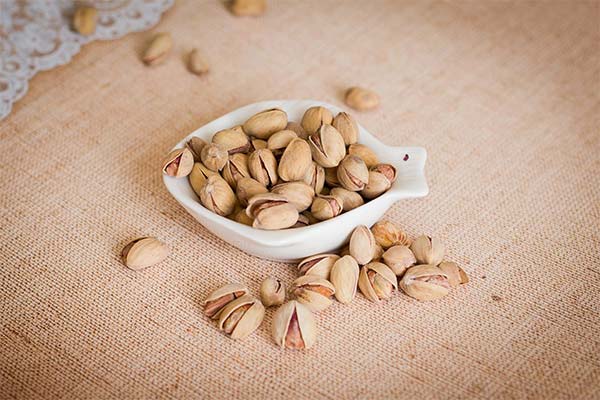
Pistachio kernels are also unique in that they can be roasted or added to other dishes. Many people prefer to eat the product raw, believing that in its pure form it will bring maximum health benefits. Here are a few options available for pregnant women to consume pistachios:
- fruit desserts;
- baked goods and pastries;
- ice cream;
- Biscuits and other confectionary products;
- meatballs and meatloafs;
- vegetable salads.
Green nuts have long been considered an integral part of vegetarian cuisine, and fans of such a diet are known to choose only healthy and safe foods.
How much you can eat a day
There is a golden rule - everything is good in moderation. This principle should be adhered to in the diet of all people, including pregnant women. Pistachios, because of their complex composition, when consumed in an irregular manner, can provoke allergic reactions and other side effects. Therefore, the optimal portion per day should be 20-25 nuts.
This is interesting! The weight of a single fruit of the pistachio tree with the shell is about 1.5 g, and the peeled kernel has a mass of only 1 g. Thus, having made simple calculations, you can determine the daily dose - 20-25 grams of pure product. This amount should not be exceeded, especially for women in the position.
Can I eat pistachios at night and on an empty stomach?
Since pistachios are not high-calorie varieties of nuts, they not only can, but must be eaten shortly before bedtime. True, this only applies to raw nuts. Nutritionists even recommend replacing dinner with a portion of a nut product. Such a light snack before going to bed will not burden the digestive system, but, on the contrary, will show the following beneficial effects:
- Will relieve daytime fatigue and anxiety;
- It will stimulate the production of melatonin;
- It will improve the peristalsis of the intestines;
- Gives a pleasant feeling of fullness.
Pistachios on an empty stomach during pregnancy are also useful because in the first trimester they help to cope with morning bouts of nausea and vomiting. Green nuts, thanks to their ability to blunt hunger, regulate appetite, which is useful for preventing weight gain.
The benefits of pistachios during pregnancy
The useful properties of any food product are based on its composition. The chemical formula of pistachios has a complex structure. Green nuts are rich in the content of the following valuable components:
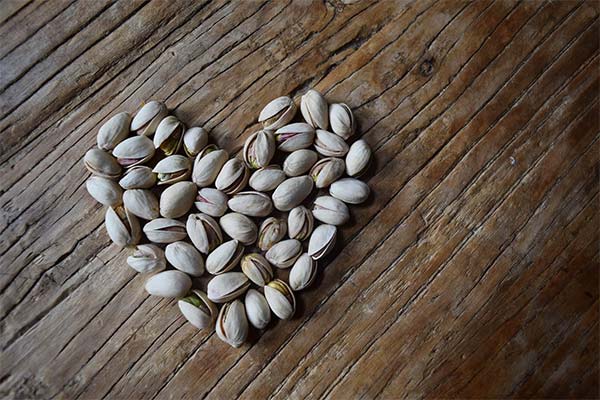
- Tanin - a powerful natural antioxidant that cleanses the body of toxins and free radicals.
- Lutein - this compound activates brain activity and is good for vision.
- Folic acid (vitamin B9) forms the formation of the placenta and is involved in the processes of hematopoiesis. This element is necessary for the normal course of pregnancy.
- Calcium in pistachios is contained in large quantities. This mineral is necessary for the formation of the bone skeleton of the unborn child. Women's bodies also need this important substance. For example, problems with teeth during pregnancy are due to a lack of calcium.
- Copper is involved in the formation of the cardiovascular and nervous system of the fetus.
- Iron provides normal hemoglobin levels, preventing the development of anemia.
- B vitamin complex supports the normal state of the nervous system. Vitamins E and A strengthen immune systems. Substances in this group are necessary for the normal structure of the nails and hair, with which often during pregnancy there are problems. Also, these vitamins help to smooth out the unpleasant symptoms of toxicosis.
- Fiber improves intestinal peristalsis, contributing to regular stools. A small portion of green nuts contains the same amount of dietary fiber as half a plate of oatmeal.
- Protein. Almost one fifth of the composition of pistachios consists of proteins, which are the basic building material for the fetus developing in the mother's womb.
- Fatty acids. They are also abundant in the kernels of pistachios. These important elements are involved in metabolic processes, regulate cholesterol levels.
- Carbohydrates make up 27% of the total composition. But despite this, the use of pistachios during pregnancy helps to normalize sugar levels in women with gestational diabetes.
In addition to the components mentioned above, the green nuts contain a lot of carotenes, there is phosphorus and zinc, selenium and fluorine, as well as many other essential organic compounds.
Caloric value
The energy content of a hundred grams serving of pistachios is 560 kcal, which, compared to other types of nuts, is considered a low indicator. In the first trimester, such a portion will cover one third of the daily diet of a pregnant woman.
The rich composition of the natural product is perfectly balanced. If you consume a daily allowable portion of pistachios, such a supplement will benefit the female body and provide the developing fetus with the necessary set of substances.
I want to pay attention to the ability of pistachios to improve memory and offset the effects of stress. During pregnancy, the nervous system of women is very vulnerable. They become irritable and capricious, can not concentrate on difficult tasks. Green nuts will help to smooth all these unpleasant moments.
Which pistachios are healthier
For moms-to-be, when it comes to food, quality is paramount. Pistachio nuts are a versatile product. They are excellent for the diet of women in the position both solo and in company with other healthy foods. If there are no contraindications, you can eat raw or roasted nuts. The main thing is that the product must be fresh and contain no flavor enhancers or other chemical additives.
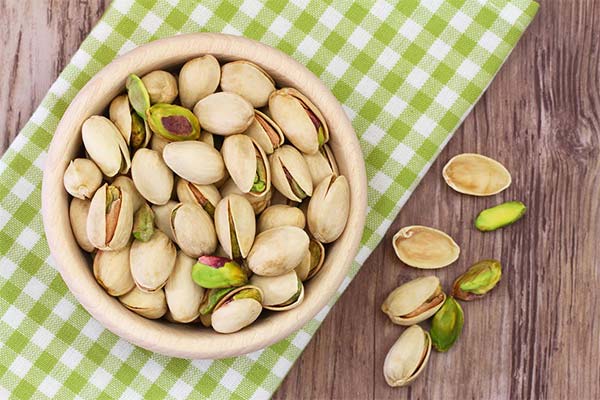
Raw
Pistachios in their raw form without salt contain the maximum amount of nutrients. They can be added to your morning porridge or a light dessert. In summertime green nuts can be added to a vegetable or fruit salad. Pistachios go well with yogurt and cottage cheese. Expectant mothers can sometimes indulge in ice cream with grated nuts. You can decorate pastries and confectionery with pistachios.
In short, the range of possibilities of eating raw product is huge, but the daily portion in any case should not exceed the allowable standard: 20-25 nuts. Considering that pistachios relieve nausea, have sedative and other beneficial properties, it is worth dividing the whole amount into several meals. But a few nuts should definitely be left for the evening, then there will be no problems with sleep.
Fried
Although roasted nuts have a more colorful flavor, after heat treatment such a product:
- Loses part of its useful composition.
- It contains a lot of salt.
- Because of the large amount of sodium chloride it provokes high blood pressure and edema.
Therefore, if you want to indulge in fried nuts, it is better to cook them yourself without adding salt. At the same time it is necessary to reduce the time of heat treatment. Slightly roasted pistachios without salt will minimize the risk of poisoning by mold, which often affects the raw product.
But roasted pistachios should not be eaten overnight.
Salted
Since during pregnancy the presence of salt in food should be minimized, it is better to give up salty pistachios. Such a product not only can provoke the development of edema, it leads to placental insufficiency and other complications of pregnancy. Given the huge health risks for women and the unborn child, salted nuts should not appear in the diet at all.
Important: It is dangerous to buy colored pistachios. The coloring of pistachios is not a coincidence. The fact is that peeled pistachios quickly lose their marketable appearance. To sell low-quality products, they are dyed.
Useful properties of pistachio oil
Extracted from the kernels of pistachio nuts oil extract is considered in cosmetology as a valuable product. It contains components necessary for the normal condition of the nails, hair and dermis. After all, during pregnancy the supply of useful substances is depleted, which affects the appearance of a woman not in the best way.
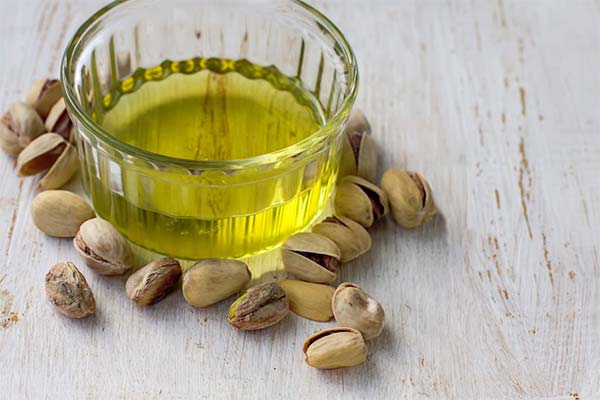
Since store care products during pregnancy is not recommended because of the content of harmful chemical additives, pistachio oil may well replace them. It can be added to masks in combination with other natural products or used pure. Home cosmetic procedures using pistachio nut oil allow pregnant women to always look attractive and well-groomed. Properties of this unique product:
- Perfectly moisturizes and nourishes the dermis.
- Combined with almond oil prevents the appearance of stretch marks on the abdomen and chest.
- Soothes hands.
- Draws away dead cells from the dermis.
- Protects from the negative effects of UV rays.
- Strengthens the structure of hair and nail plates.
Pistachio oil is a universal product that can be used instead of cream. It is applied not only to the skin of the face, but also on the hands and feet. This product is ideal for caring for the delicate skin of newborns. Therefore, such a useful tool will come in handy after the birth of a baby.
Attention! Pistachio oil is strictly forbidden to ingest during pregnancy. The high content of essential components in the product can provoke uterine contractions and lead to miscarriage. In addition, pistachio oil even in small quantities can cause headache, nausea and vomiting.
Can pistachios harm the mother-to-be?
Any product can be both beneficial and detrimental to your health. The fruits of the pistachio tree have more than just appealing gastronomic qualities. They contain substances that can harm the woman's body and the fetus. Various side effects can occur if the product is consumed incorrectly or if the norm is not followed.
- Pistachios are quite caloric products. In a daily serving there are approximately 170 kcal. Therefore, women who are prone to obesity should give up this gastronomic pleasure.
- Uncontrolled consumption of green nuts can cause premature birth.
- Digestive disorders and bloating are not excluded in case of non-compliance with the norm.
- Salted nuts can cause kidney dysfunction, which also threatens the normal course of pregnancy.
- All kinds of nuts are considered to be allergens. During pregnancy the body's defenses are weakened, so the risk of allergic reactions increases.
- Do not forget that the developing fetus receives nutrition through the placenta. Therefore, the excessive use of pistachios by mother during pregnancy can subsequently affect the health of the child. Especially high probability of allergic manifestations.
- If you get too carried away with nuts, it is easy to worsen brain activity.
If before pregnancy a woman consumed pistachios and no abnormalities from the body were observed, this does not guarantee the absence of all the above-described negative phenomena. Pistachios should not be eaten like seeds. This product is eaten in small portions, a few pieces, because in each kernel there is a huge potential.
Contraindications .
In addition to the harm that can bring uncontrolled consumption of pistachios, you should also consider the contraindications. Pistachios are forbidden to eat during the period of fetal delivery to women who have:
- Obesity degree II or III;
- tendency to allergies;
- risk of abortion;
- hypertension;
- impaired kidney function;
- chronic gastrointestinal diseases;
- diarrhea.
But even if there are no contraindications, the expectant mother should always consult a gynecologist about the inclusion of such a controversial product, such as pistachios, in the diet. If the doctor considers it necessary, he will give recommendations on how to use green nuts and with what it is better to combine them.
How to choose the right nuts
All expectant mothers should monitor the quality of those products that come to them on the table. Therefore, the choice of pistachios should be taken very seriously. After all, exotic nuts make a long way before reaching the shelves of our stores. Given the fact that in domestic supermarkets is not always present product of excellent quality, we must remember exactly what points should be paid special attention when choosing pistachios:
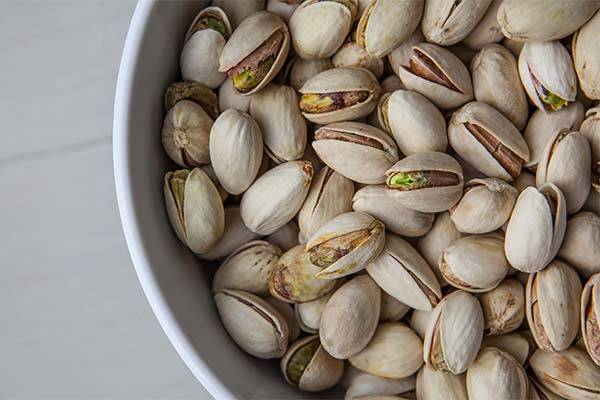
- Absence of mold. Signs of fungal infestation should not be noticed neither on the surface of the shells, nor inside the nut.
- Flavor. Quality pistachios have a pleasant, fresh aroma. If the smell is musty and smells damp, it is better to refuse to buy such a questionable product.
- The fruit should be whole and the shell open. This sign indicates the maturity of the nuts.
- Pistachio kernels, which can be seen through the cleft in the shell, should be bright green in color.
- The shells of true pistachios are hard, light beige in color and without any extraneous spots. Therefore, pure white nuts, which are often found on the shelves of grocery stores, are most likely the product treated with different chemicals.
- Size. When choosing high-quality products, it is worth giving preference to large specimens, since their kernels have a more pronounced taste.
- The maturity level. It is not difficult to determine this parameter by the opened flaps of the nut shell and the reddish film that covers the inner part of the chamber.
- Where to buy. In this regard, our women do not have much choice, because there are only two options: the market or the store. But in the store, most often they sell already packaged goods, the external characteristics of which are difficult to visually assess. This is why it is better to buy pistachios on the market. If there is no such a possibility, then you need to carefully study the information on the label, which necessarily indicates the manufacturer, the expiration date, the components of the composition.
An important point: For the preservation of plant products, many manufacturers supply roasted pistachios to the retail network. Therefore, you need to pay attention to the percentage of salt content. It is undesirable to eat products during pregnancy, which include food colorings, preservatives and other unsafe additives.
To get the most out of pistachio nuts, it is better for pregnant women to eat raw nuts. To prevent the valuable product from spoiling, you need to dry it well. This will increase the shelf life. The best place to store pistachios is the refrigerator. There they will retain their taste and useful properties for 5-6 weeks, and if they are placed in the freezer, the shelf life will increase to a year.
Conclusion
The pistachio tree is called the "tree of life" in the East, which is not surprising. After all, the small, strong kernels contain a huge supply of nutrients. That is why pistachios were highly valued in ancient times, especially in Turkey and Syria. For inhabitants of Eastern countries these nuts were a symbol of prosperity and wealth. But, if in the past not everyone could afford such a delicacy, today these delicious and nutritious fruits are available to everyone. For future mothers, wonderful nuts will become for a time and a healthy food, and a means to maintain beauty. You just need to remember that everything that does not exceed the norm is useful.
«Important: All information on this site is provided for informational purposes only purposes only. Consult with a medical specialist before applying any recommendations. specialist. Neither the editors nor the authors are liable for any possible harm caused by materials."


